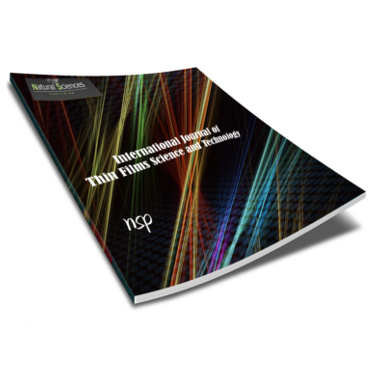International Journal of Thin Film Science and Technology

Abstract
This work presents entirely a new, green, and non-expensive route of synthesis of zinc nanoparticles (NPs) using waste tea. The crystalline nature of waste tea-mediated Zn NPs (WT-ZnO NPs) was confirmed by XRD and SAED analyses. Further characterizations of WT-ZnO NPs were done using UV-vis spectroscopy, FTIR spectroscopy, SEM- EDX, and TEM. The size of synthesized NPs was calculated to be 15.1 nm which presented spherical morphology with some sorts of agglomeration. The WT-ZnO NPs when applied as visible light-driven photo catalyst for degradation of Malachite green dye. Adsorptions of Malachite green (MG) dye follow pseudo-first-order kinetics. It was found that the dye degradation showed best results in the presence of sunlight at a pH of 3, Malachite green (MG) Dye concentration 50 ppm with 60 mg of WT-ZnO NPs. At room temperature, the maximum removal of dye was achieved in 105 min by stirring. Malachite green (MG) showed that degradation was 96.45 % in the presence of visible light and 81.5% in the presence of sun light within the experimental time. The highly pure, WT-ZnO NPs are considered to have comparable photocatalytic activity with respect to most of the reported works and hence might find a way for its practical application for waste water treatment in the real world. The WT-ZnO NPs could be reused at least for three times without any significant loss in degradation efficiency.
Recommended Citation
Baiju Mampilly, Rehana; Pathan, Amanullakhan; and P. Bhasin, C.
(2023)
"Visible Light-Assisted Degradation of Malachite Green dye using Waste Tea-Mediated Zinc Nanoparticles,"
International Journal of Thin Film Science and Technology: Vol. 12
:
Iss.
1
, PP -.
Available at:
https://digitalcommons.aaru.edu.jo/ijtfst/vol12/iss1/5

